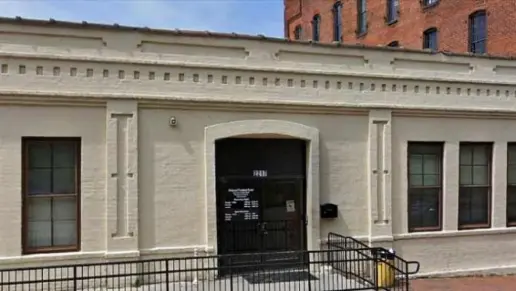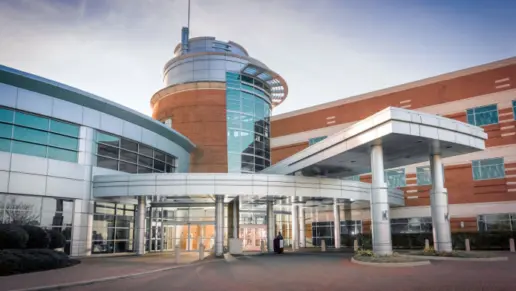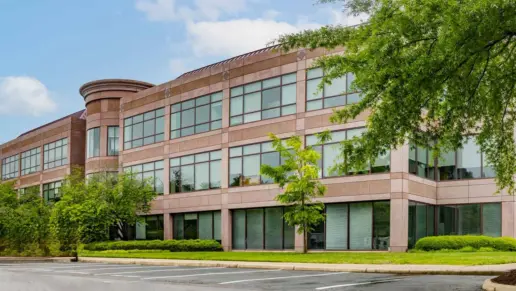During the last six months I have seen the biggest change in my son and his entire life the biggest change is he give his life to Jesus Christ which in return has changed his entire life it has restored his relationship with his mother his siblings and his father his attitud ...
About Hope Center Ministries – Axton Men’s Center
Hope Center Ministries - Axton Men’s Center is a faith based alcohol and drug abuse rehab in Axton, Virgina. Firmly rooted in the 12 Step program philosophy, they provide inpatient programs and aftercare to help adult men recover from addiction.
The center has a 12 month program that’s divided into three phases. Each stage focuses on a certain aspect of recovery. Along the way, you’ll have access to all of the center’s amenities, like snacks, meals, gym membership, and outdoor activities.
The first phase is four weeks long. Included services in this first phase are Bible studies, group and individual counseling, personal spiritual development, and family conferencing.
Phase 2 lasts 40 weeks. During this time you’ll continue the treatment begun in the first phase. However, your treatments evolve to best fit your individual needs by supplementing daily chores with career coaching and life skills development.
In the final eight weeks of the program, you’ll receive more privileges, such as using their personal phones and vehicles. When you’re in this last phase, you should be able to ease into independent living and full recovery.
Hope Center Ministries doesn’t offer medications or detox. But they can make referrals to detox facilities for acute cases.
Hope Center Ministries costs $700 for the complete program.
Rehab Score
Gallery
Other Forms of Payment
Self-pay involves paying for treatment out of your own pocket. You can use savings or credit, get a personal loan, or receive help from family and friends to fund your treatment. If you don't have insurance or your insurance plan doesn't cover a specific program, self-pay can help ensure you still get the care you need.
Addiction Treatments
Levels of Care
Treatments
The goal of treatment for alcoholism is abstinence. Those with poor social support, poor motivation, or psychiatric disorders tend to relapse within a few years of treatment. For these people, success is measured by longer periods of abstinence, reduced use of alcohol, better health, and improved social functioning. Recovery and Maintenance are usually based on 12 step programs and AA meetings.
When you enroll in drug rehab in Virginia, a treatment plan is designed by professional staff in order to help you overcome drug addiction and modify addictive behaviors. This may include evidence-based treatments, group and individual therapy, and relapse prevention.
Opioid rehabs specialize in supporting those recovering from opioid addiction. They treat those suffering from addiction to illegal opioids like heroin, as well as prescription drugs like oxycodone. These centers typically combine both physical as well as mental and emotional support to help stop addiction. Physical support often includes medical detox and subsequent medical support (including medication), and mental support includes in-depth therapy to address the underlying causes of addiction.
Substance rehabs focus on helping individuals recover from substance abuse, including alcohol and drug addiction (both illegal and prescription drugs). They often include the opportunity to engage in both individual as well as group therapy.
Programs


Clinical Services
Research clearly demonstrates that recovery is far more successful and sustainable when loved ones like family members participate in rehab and substance abuse treatment. Genetic factors may be at play when it comes to drug and alcohol addiction, as well as mental health issues. Family dynamics often play a critical role in addiction triggers, and if properly educated, family members can be a strong source of support when it comes to rehabilitation.
Group therapy is any therapeutic work that happens in a group (not one-on-one). There are a number of different group therapy modalities, including support groups, experiential therapy, psycho-education, and more. Group therapy involves treatment as well as processing interaction between group members.
In individual therapy, a patient meets one-on-one with a trained psychologist or counselor. Therapy is a pivotal part of effective substance abuse treatment, as it often covers root causes of addiction, including challenges faced by the patient in their social, family, and work/school life.
Life skills trainings involve all the skills a person must have in order to function successfully in the world. These include time management, career guidance, money management, and effective communication. Truly successful addiction recovery is based on the ability to not only live substance-free, but to thrive. Life skills teaches the practical necessities of functioning in society, which sets clients up for success in life, and therefore sobriety.
Recreational therapy (aka therapeutic recreation) uses creative and fun activities to help with addiction recovery. Recreational therapists lead patients in entertaining and engaging activities like sports or games; art (drawing, painting, sculpture); drama, music, and dance; and/or community outings (field trips) to improve patients' physical, social, and emotional well-being.
Amenities
-
Private Setting
Contact Information
6871 Irisburg Rd
Axton, VA 24054


